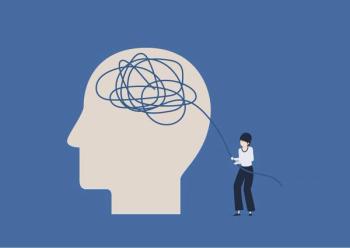
Visits From Pharmaceutical Reps
With new pharmaceuticals entering into the market, sales calls on psychiatrists rose 5% from October 1998 to October 1999. Increasingly, industry-supported dinners, meetings and educational activities are the norm, with physicians leading the lectures. Meanwhile, the reps often have useful information for the practicing clinician, such as new treatment options and how to dilute or split medications to make them easier to take or cost less.
Visits from pharmaceutical representatives to psychiatrists have increased over the past two years. So have marketing budgets and the number of industry-sponsored events that feature doctors as guest experts.
Sales calls on psychiatrists rose 5% from October 1998 to October 1999 and are expected to rise roughly 3% this year, according to Jody Fisher, a product manager with the independent pharmaceutical marketing firm Scott-Levin. Translated into drug company revenue, psychiatrists are projected to generate approximately 8.2 billion in retail prescription sales, up from 7.4 billion the previous year.
According to company figures, psychiatrists were the fifth most detailed specialty in a field of 31 doctor groups surveyed in 1998 and 1999. Drug companies spent more than 335 million on details to psychiatrists in 1999, up from nearly 300 million in 1998 and close to 265 million the year before. Detail-related spending on psychiatrists ranked fourth overall.
Data were gathered as part of Scott-Levin's Personal Selling Audit and Hospital Personal Selling Audit, which track roughly 7,500 and 3,000 physicians respectively each week. The audits provide sophisticated projected spending estimates on sales call and detail activity, based on such variables as the informational value of the detail, physician demographics, and physicians' self-report of prescribing levels of a given product and their intended prescribing patterns.
Fisher told Psychiatric Times that she believes the increase is largely due to sales opportunities associated with new indications for existing drugs such as Paxil (paroxetine), Prozac (fluoxetine) and Zoloft (sertraline) and said selective serotonin reuptake inhibitors remain the most heavily marketed drugs. Explosive growth in the number of sales representatives has also driven up the number of visits paid to psychiatrists and other physicians. The practice of buying prescription records from pharmacy chains has allowed sales reps to pinpoint the prescription practices of individual physicians, enabling pharmaceutical companies to better target marketing efforts.
The Internet hasn't hurt, either. Reps working in tandem, an increasingly common phenomenon, need look no further than their laptops to find out what to emphasize-or leave out-on their next sales call, based on their colleagues' most recent visit.
Industry experts agree that drug companies are increasingly reliant on doctors to help them sell products. Symposia, dinners and other events at which doctors are featured speakers have exploded in recent years, Kelly Sborlini told PT, largely due to event audits that indicate higher ratings for physician speakers than for pharmaceutical pitchmen. Sborlini, another project manager at Scott-Levin, said company audits also indicate that participants' interest in the topic and regard for the expertise of the speaker tend to trump skepticism associated with a company-sponsored event.
Ralph Capaldi, a former sales rep for two large pharmaceutical companies, organized his share of physician-led events before leaving the pharmaceutical industry in 1999. Capaldi told PT those physicians paid to be featured speakers at company-sponsored dinners were generally big prescribers of a given class of medications (e.g., antidepressants), even if those medications weren't the company's products.
Other times, they were chosen because records indicated that the number of prescriptions they wrote was down and the company wanted to reverse the trend. "It was an unsaid thing," he said. "It wasn't something we made great noise about." Ironically, Capaldi remains unconvinced that the working dinners drummed up much business among attendees. In addition, spending money on doctors whose drug choices were dictated by formulary was useless if the company's products were not among them, he said.
Asked by PT if he thinks gifts, dinners, trips or other perks made much difference, Capaldi's answer was mixed. "They only make a difference when you don't have them. They're probably neutral when you have themSMQ-8230-SMQThey buy you time with a doc, time that might change his mind."
Capaldi said ceilings on per capita spending-in accordance with American Medical Association guidelines-were respected, even if it meant he paid the overage out of his own pocket. "We made good money, and it was a way to continue to see the doctors," he said.
On the other hand, Capaldi's customers inevitably made sure to tell him about tickets they received from rival companies to professional sporting events, where the "official" educational seminars took place in a private box stuffed with shrimp cocktail and an open bar. "Clearly it was a misrepresentation of what was supposed to go on, but it happened. Here you are, working for a company that wants to abide by the guidelines, and you can't compete with a guy who's giving away tickets," he said. "Money is the big resource. The pads and pens are great for access, but the dinners and what costs money-CDs, handheld computers, everything given in the name of research-this is what's thrown at docs to get them to change their minds."
This is exactly the kind of anecdote that has critics of lavish pharmaceutical marketing practices worried but not particularly surprised. "Some [doctors] will maintain that they're not influenced" by perks and other incentives, Herbert Rakatansky, M.D., chair of the AMA's Council on Ethical and Judicial Affairs, said in an interview with PT. "That's wrong. They are influenced, and there's scientific evidence to prove it."
Rakatansky and other critics of extravagant gift-giving by the pharmaceutical industry also are disturbed by studies examining patients' attitudes toward perks. One such study (J Gen Intern Med 1998;13[3]:151-154) found that patients view gifts from pharmaceutical companies to physicians as less appropriate and more influential than the doctors surveyed. The survey included ratings of 10 different gifts, including small texts, videos, mugs, drug samples, meals and trips.
The impact of direct-to-consumer advertising has also created opportunities for reps. "The overwhelming attitude toward consumer ads is negative among doctors and positive among patients," said Sborlini. Doctors "react even more negatively if they're caught unawares" by patients lobbying for a specific prescription and are receptive to prelaunch educational opportunities, she added.
Los Angeles psychiatrist Elizabeth Schmid, M.D., is no fan of direct-to-consumer ads and much prefers face-to-face contact with a rep. Schmid worked as a drug rep in Austria in the late 1960s and early 1970s and generally likes reps. "I'm expecting a lot from them because I was one of them and know it can be done," she told PT. She is now a staff psychiatrist at the Los Angeles County Department of Mental Health West Valley Mental Health Center in Canoga Park, Calif. "They're indispensable if they're good," said Schmid, who said representatives offer important in-the-field information about what's working-or not working-for fellow psychiatrists in the area. She believes most reps are trustworthy but insists that that there is no substitute for keeping up with reading journals.
Maine psychiatrist Benjamin Crocker, M.D., told PT he appreciates brevity and has little patience for razzle-dazzle sales tactics. He added, "Reps who at least acknowledge that price is an issue get points with me versus those who say that talking about price isn't in their job description. Can you imagine anyone else trying to sell you stuff without discussing price?"
Like Schmid, Crocker believes that reps can serve as an important educational resource. "Reps can teach docs to be more careful, like monitoring labs and being aware of side effects, and they can teach us tricks like how to dilute or split medicine to make it easier to take or cost less," said Crocker, who is secretary of the American Association of Community Psychiatrists. "They challenge us to defend our preconceptions in a different way than colleagues, patients or students do, and, if they have some chutzpah, they may be able to penetrate a doc's narcissism in a way that approximates supervision."
Capaldi also believes that reps often provide valuable information for doctors, but he laments that he frequently didn't get the opportunity to do just that. "I think sometimes docs see reps as glorifiedSMQ-8230-SMQdelivery drivers with ties on," he said. "They just saw us as the people who delivered the samples, as opposed to a resource to learn [from]SMQ-8230-SMQThey didn't see we could add value to the way they practice medicine. In some cases we couldn't, but in some cases we really couldSMQ-8230-SMQSome are just there to sell their drugs, but a good many believe in their drug. No drug is good for everyone. Every drug is good for somebody. As long as you believe that, you can sell anything."
When asked to comment on the often-reported contentiousness between doctors and sales reps, Crocker takes a psychodynamic approach. "Our dependency on our prescribing privilege is what puts us in the same industry as the drug detail men. Of course all doctors do some valuable things beyond prescribing, but a lot of us would be out of a job or paid less if we didn't have that monopoly. Many psychiatrists are ambivalent about the ascribed power and would prefer to be therapists or consultants, which may be why projections of greed and commercial crassness are directed at the reps who make us focus on our monopoly meal ticket."
Crocker advocates a "dutch treat" approach to doctor-rep relations and believes it could be appropriate, if not outright corrective, for a doctor to invite a drug rep out to dinner if the latter has something to teach. A more level playing field also means greater mutuality and less reliance on reps, said Crocker, who has been known to distribute customized, free pens at professional meetings touting the benefits of tried-and-true generics. "We need to de-emphasize our dependence on getting samples by utilizing mail programs to the max and otherwise demanding that patients get assistance with medication costs, while trying to be cognizant of costs of prescribing. We need to organize our own counter-detailing and challenge the reps to debate us on issues of controversy, like in the case of generic clozapine and valproate, or the use of non-patented substances as medicine."
Until Crocker's gentle revolution comes to pass, you might want to take another look at the pen in your pocket. You'll know who to thank if it says, "Imipramine and desipramine work fine for panic and depression. Start low and go slow, artful doc."
Newsletter
Receive trusted psychiatric news, expert analysis, and clinical insights — subscribe today to support your practice and your patients.







